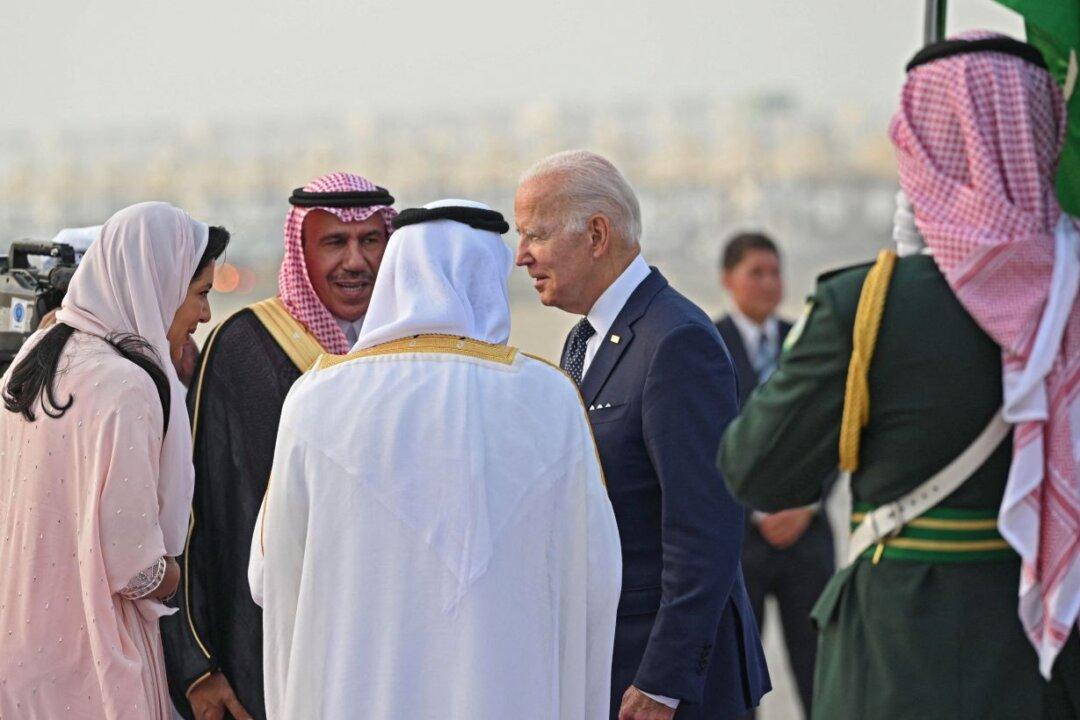President Joe Biden arrived on July 15 in Saudi Arabia, giving Crown Prince Mohammed bin Salman a fist bump and shaking hands with King Salman, after previously pledging during his presidential campaign to make the kingdom a “pariah” on the world stage.
White House press secretary Karine Jean-Pierre told reporters on July 15 that the trip “follows the monumental decision to open Saudi airspace to all civilian carriers without discrimination, a decision that includes flights to and from Israel.”





